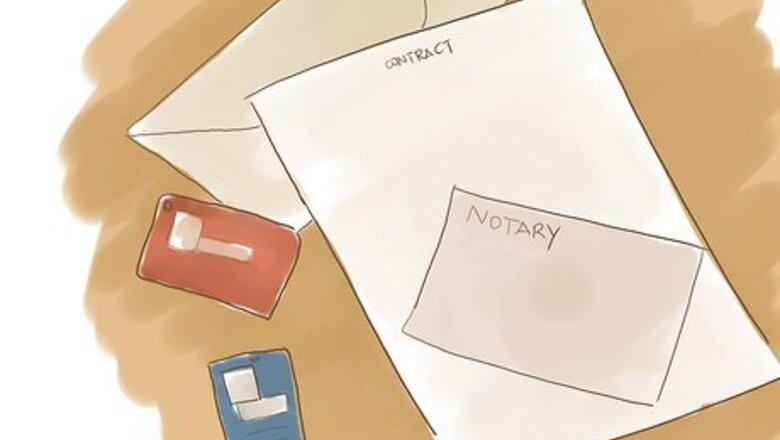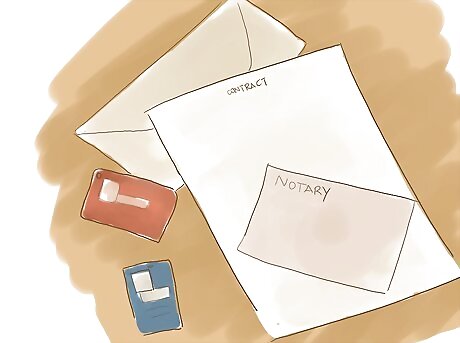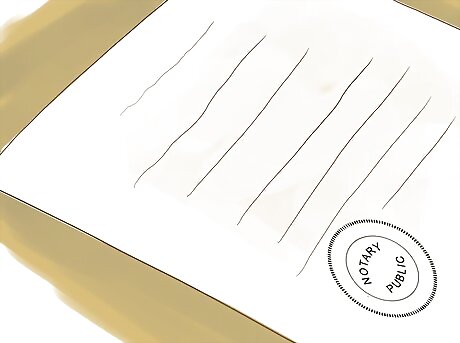
views
Determine what documents are required.

While you obviously must bring proof of ID, notaries are not just providing validation for the signature but are in fact guaranteeing that each side is prepared to live up to the contract. Additionally, in some states the title itself becomes a legal contract, while in other states there are separate applications associated with title transfers (North Carolina, for example, has a separate form that requires notarization). Make sure to do your research on what your state requires beforehand. Each state has its own procedures, and the differences can be substantial. Some states require no notarization of auto sales, while others have rather lengthy lists of requirements. You can find out more about your state here.
Make sure you possess the right to sell.

This may sound obvious, but again there are notable differences between states on who possesses the right to sell. Minors often do not have the right to sell a vehicle without the authorization of a parent or guardian, regardless of the name on the title. Many states prevent the sale of vehicles that still list liens on the title of ownership. It would be wise to bring proof of a lien release with you to the notary's office.
Meet with a notary public.

Schedule an appointment with the notary. You can find a notary public at: A local bank or credit union. Many financial institutions have a notary public who can notarize documents for a small fee. Most UPS stores and pawn shops will have a notary available for a small fee, though it is always best to call ahead and verify availability. Notary Rotary. Notary Rotary provides a database of notaries public searchable by zip code.
Determine who needs to be there.

Remarkably, even among all the states that require the signature of a notary, there are again many differences. For example: The state of Ohio requires that both buyer and seller sign in front of the notary, or at least inform the notary in person that they did sign the document. In North Carolina, only the signature of the seller must be notarized. Notaries in Montana can notarize open titles--that is, they can authorize the sale of a vehicle without a buyer ever being identified on any document.
Take the required items to your notary appointment.

At the least, you will need the title, your state issued photo identification (“ID”), and the notary fee. ID must be issued by the state (such as a drivers license) or the military (such as a military ID card) and contain a photo.
Sign the title in front of the notary.

Use blue or black ink. If you are the seller, sign your name exactly as it is listed on the title. For example, if the title uses your middle initial, you should sign using your middle initial as well. If you are the buyer, sign your name exactly how you wish for it to appear on the title. For example, if you want to use your middle name, sign the title using your middle name.
Have the notary sign and seal or stamp the title.

The Notary will sign and then stamp or seal the title, verifying that the signatures are those of the buyer and/or the seller.
Pay the Notary fee.

Notaries may charge a small fee for their services. In Ohio, the fee to have both signatures notarized on a car title would be $4. In California, the maximum fee that can be charged by a notary in this circumstance is $10.


















Comments
0 comment